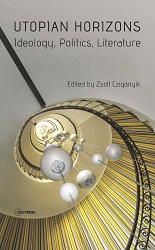Civil Religion as Utopian Ideology
Civil Religion as Utopian Ideology
A Case Study of H. G. Wells
Author(s): Károly Pintér
Subject(s): Politics / Political Sciences, Political Theory, Sociology of Religion
Published by: Central European University Press
Keywords: utopia;Civil Religion;H. G. Wells;
Summary/Abstract: Utopias have a controversial relationship with organized religions. As they are by definition seeking to present a social vision of a human community organized along significantly different rules and conventions than the author’s contemporary society, they implicitly or explicitly challenge the norms and habits of existing societies, including the moral code and spiritual goals, which are predominantly influenced by the majority religion of that particular community. In other words, utopias have an inherent heterodox tendency, which renders them suspect in the eyes of religious authorities. The Catholic philosopher Thomas Molnar summarized this phenomenon succinctly when he described utopias as “perennial heresies” in relation to doctrinal orthodoxy: “The important utopian writers are heretics from the point of view of Christian doctrine; they want to restore man’s original innocence—his knowledge and power—and, to achieve this objective, they want to abolish original sin and start with unspoiled beginnings.”
Book: Utopian Horizons. Ideology, Politics, Literature
- Page Range: 145-159
- Page Count: 15
- Publication Year: 2017
- Language: English
- Content File-PDF

